As a personal trainer, clients ask me all the time about the purpose of knee sleeves, their benefits, and whether or not they should use them.
Knee sleeves work by compressing the knee joints and warming up the area, leading to a modest strength boost, a more comfortable training experience, fewer nagging aches, and a boost in post-workout recovery.
While sleeves offer some obvious benefits, there are also some drawbacks that you should consider before using them to stay injury-free.
Key Takeaways
What Are Knee Sleeves?

Knee sleeves are a piece of supportive equipment you pull over your knees to improve joint stability, boost your performance on certain lifts, warm up your knees more quickly, and provide relief from nagging aches.
Sleeves are typically made of neoprene, the same material used in making diving wetsuits. It is well-known for its ability to insulate and trap heat, which warms up the knee area for safer and more comfortable movement.
Knee sleeves are typically 3, 5, or 7 mm thick. You can also find 9 to 9.5 mm sleeves, but these are less common because they tend to be too thick to move in.
The 3 mm sleeves are beneficial for non-gym activities like walking, jogging, and hiking because they don’t provide much support but they will still provide some warmth.
Slightly thicker sleeves (5 mm) are helpful for new trainees and those experiencing mild discomfort during lower body exercises like the squat and lunge. Such sleeves provide some support and warm up the knees more quickly.
Finally, we have 7 mm sleeves, the gold standard in powerlifting, CrossFit, bodybuilding, and Olympic lifting. These sleeves provide more compression and are helpful for trainees looking to optimize their performance without sacrificing knee mobility.
Good knee sleeves are long enough to cover the area from the lower thighs to the upper knees, which is around 9 to 10” for most people.
Related Article: How Much Are Knee Sleeves & Are Expensive Brands Worth It?
Wearing Knee Sleeves While Lifting: 5 Benefits

1. Knee Compression, Stability, and Alignment
The most apparent benefit of knee sleeves is the compression they provide. Good sleeves wrap tightly around the knees, which boosts stability and promotes proper joint alignment.
The more control you have over your knee position, the more stable you’ll feel, and the stronger you’ll be.
Of course, that doesn’t mean knee sleeves are a magical tool you should use to treat any knee problems related to stability or alignment. Sometimes, addressing the underlying cause (i.e. lack of strength in stabilizing muscles) is necessary to save yourself from a potentially bigger problem.
2. Potential Performance Boost
This is a slightly more controversial benefit of knee sleeves. According to some people, knee sleeves aren’t meant to provide a performance boost. Their only job is to keep the knees warm, especially during the colder months of the year.
Some research also supports the idea.
In a 2017 review of 20 studies, the authors noted that 12 papers found benefits related to gait and functional parameters (position & balance). But, the remaining 8 studies showed no positive effects of wearing knee sleeves.
However, even if we assume that all of the studies were done on trained lifters who wore the right size 7 mm neoprene knee sleeves, which isn’t the case, we still can’t ignore the anecdotal evidence.
Countless average and competitive lifters worldwide use knee sleeves during their training and report greater comfort, more confidence, and an improved ability to squat more weight.
It’s unclear precisely how much knee sleeves improve strength performance, but it should be at least a 5 percent boost, given the positive impact on knee stability and the greater comfort.
Plus, knee sleeves provide proprioceptive feedback (better perception of your knee positioning), allowing trainees to better understand how their knees (and legs, as a whole) are moving during certain activities.
According to research, proprioceptive feedback can help the central nervous system identify the optimal movement pattern during specific activities.
For example, when wearing knee sleeves during squats, trainees can gain a better understanding of how they are moving through space and if they are reaching the appropriate depth on each repetition.
Lastly, since neoprene has elastic properties, it can stretch and store potential energy as we descend during squats, providing a slight ‘bounce’ off the bottom position of a squat.
3. Relief From Nagging Aches And Discomfort

Knee sleeves promote blood flow and warm up the area, benefiting people with nagging pain or general discomfort; particularly those who find that their knee pain dissipates after a good warm-up.
Additionally, if you’ve had a knee injury in the past that affects your training now, knee sleeves could alleviate the discomfort, enabling you to train harder and see better results, pain-free.
“It is thought that knee compression sleeves help alleviate knee pain because of an increase in proprioception. Simply placing a sleeve on your knee can improve not only your pain but it can improve your sense of stability that many arthritic patients lose.”
That said, knee sleeves won’t alleviate all types of pain. If you’re still experiencing knee pain while using knee sleeves, then you should take a step back and address the underlying issue.
4. Potentially Better Recovery Times
Some research suggests that compression garments, like knee sleeves, can speed up recovery. In one meta-analysis from 2017, researchers took data from 23 studies on the impact of compression on recovery in trained and untrained subjects.
The researchers suggested that:
“Strength recovery was subject to greater benefits than other outcomes, displaying large, very likely benefits at 2-8 h and >24 h. Recovery from using CG was greatest following resistance exercise, demonstrating the largest, very likely benefits at >24 h.”
Knee sleeves could speed up recovery thanks to their ability to keep the knees warm and promote blood flow.
Of course, it’s worth noting that knee sleeves might improve recovery only if trainees continue to wear them after working out. Because of that, it might be helpful to have a pair of thinner sleeves for after your training sessions and only use 7 mm knee sleeves during workouts.
5. Warmth And Comfort
As discussed above, good knee sleeves are made of neoprene, which can insulate and trap heat, allowing trainees to warm their knees more quickly and feel comfortable during training.
These effects are particularly pronounced during the colder months of the year and when working out in a cold environment.
Warming up the knees more quickly allows the synovial fluid (the viscous liquid inside the knees) to reduce friction in the joints more effectively and serve as a shock absorber during weight training.
Once your joints are lubricated with fluid, you’ll notice that movements feel smoother and more comfortable.
Are There Any Drawbacks To Wearing Knee Sleeves?
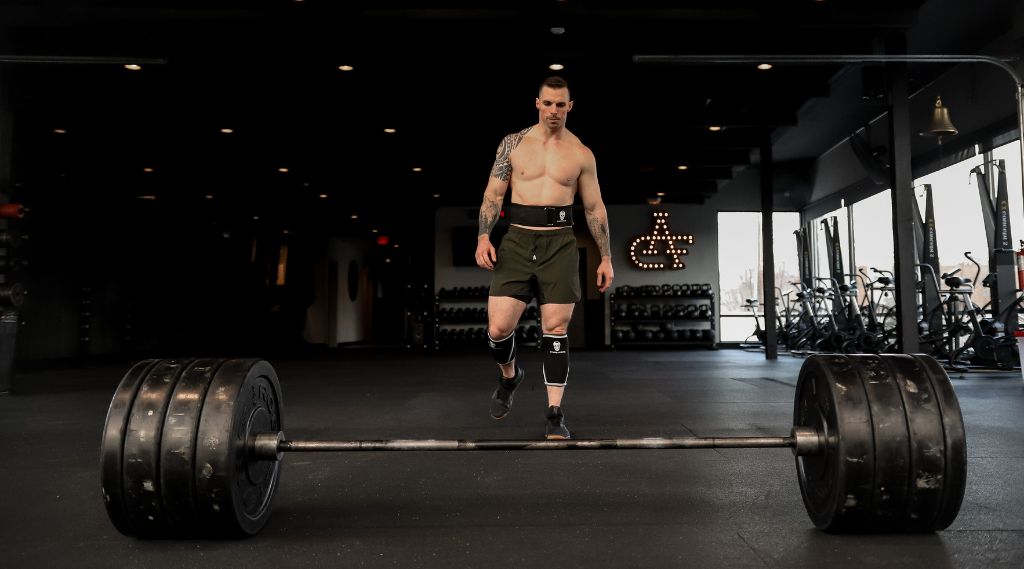
Although there are many benefits to wearing knee sleeves while lifting, there are also some drawbacks to consider.
Taking Advantage Of The Support
Some trainees might abuse the support they get from knee sleeves at the bottom position on squats. As discussed, knee sleeves are made of neoprene, which is elastic and stretches as we descend.
Too much of a ‘bounce’ off the bottom position is not ideal because it negatively affects your squat mechanics by taking some tension away from your quadriceps and stressing your joints and connective tissues.
So although knee sleeves have the potential to protect your knee joints, they could also increase your risk of injury if you’re not using them properly.
You should not be dive-bombing your squats to get more bounce out of the hole.
To avoid a potential injury, make an effort to keep your muscles engaged during your squat descent and as you come out of the hole.
Becoming Overly-Reliant
Like any piece of supportive equipment, knee sleeves serve a purpose and should only be used when trainees feel the need.
Some lifters can become too reliant on knee sleeves and ignore other best practices for safety and optimal performance: good warm-up (and warm-up sets), lifting the appropriate load, doing slow and controlled reps, etc.
You shouldn’t get to the point where you’re unable to lift even light loads without using knee sleeves. They are meant to augment your performance, not be used as a crutch.
Should You Always Use Knee Sleeves? 4 Signs To Know
Here are four scenarios where it makes sense to wear knee sleeves:
1. For Lower Body Training
The first and most obvious scenario where it makes sense to get some knee support is during lower-body training sessions. You should wear sleeves early in your sessions to warm your knees and promote stability during heavy sets on compound lifts like the squat.
Once you’ve warmed up well and have transitioned to accessory and isolation exercises (i.e. lunges, leg extensions, hamstring curls), you can roll the sleeves down to your ankles.
2. During Competitions
The second scenario where you should consider knee sleeves is during competition. A good pair of 7 mm sleeves will promote knee stability and boost your performance, allowing you to put up a higher total.
3. When Training In a Cold Gym
Another scenario where it makes sense to wear knee sleeves is if you train in a cold gym. A cold environment can make it more challenging to warm up your knees before your working sets begin, causing joint stress.
Wearing sleeves can trap heat in the knee area, leading to a safer and more comfortable training experience.
4. When You Need Extra Knee Support
The final scenario where you should consider sleeves is when your knees feel achy or stiff.
You don’t want to be overly reliant on knee sleeves but don’t shy away from putting them on when you feel the need. Sleeves can provide decent support on most activities that include some knee flexion and extension, including squats, deadlifts, and even push-presses.
Do Knee Sleeves Actually Help?

Research surrounding the effectiveness of knee sleeves is mixed. First, as briefly discussed above, one meta-analysis from 2017 didn’t find much use for knee sleeves, except for gait, position, and balance, in 12 of the 20 reviewed studies.
However, that doesn’t mean they are useless because:
A more recent study examined the effects of neoprene knee sleeves on squat strength. It found that knee sleeves could improve one-rep-max strength on squats. On average, the improvement in 1RM appeared to be around 5 percent.
Interestingly, the strength boost seemed to occur similarly among participants, independent of the level of tightness that the knee sleeves were worn:
“The present results demonstrate that neoprene knee sleeves may function independent of tightness, relative to recommended sizing and ultimately unlike knee wraps.”
Ultimately, we need more research before concluding the effectiveness of knee sleeves for strength athletes.
But, we must also consider the overwhelming anecdotal evidence from lifters who report that knee sleeves do help. Coupled with the fact that almost every top-level powerlifter wears knee sleeves when competing raw, it isn’t a stretch to assume they help.
For example, I simply feel more comfortable and in control when I use sleeves. It’s nice to get extra knee support, which allows me to tackle heavier weights and train my lower body more effectively.
The same goes for some of my clients. Sleeves provide a sense of security and can be a helpful tool when lifting, especially beyond 80 percent of 1RM. The bottom line is to test them out for yourself and see how you feel with and without sleeves.
Frequently Asked Questions
Do Knee Sleeves Weaken Knees?
There is no evidence to suggest that knee sleeves weaken the knees. If anything, sleeves provide a small bit of support and help warm up the knees more quickly, resulting in safer and more comfortable workouts.
Are Knee Sleeves Considered Cheating?
No, knee sleeves are not considered cheating. They are allowed in weightlifting, CrossFit, and raw powerlifting.








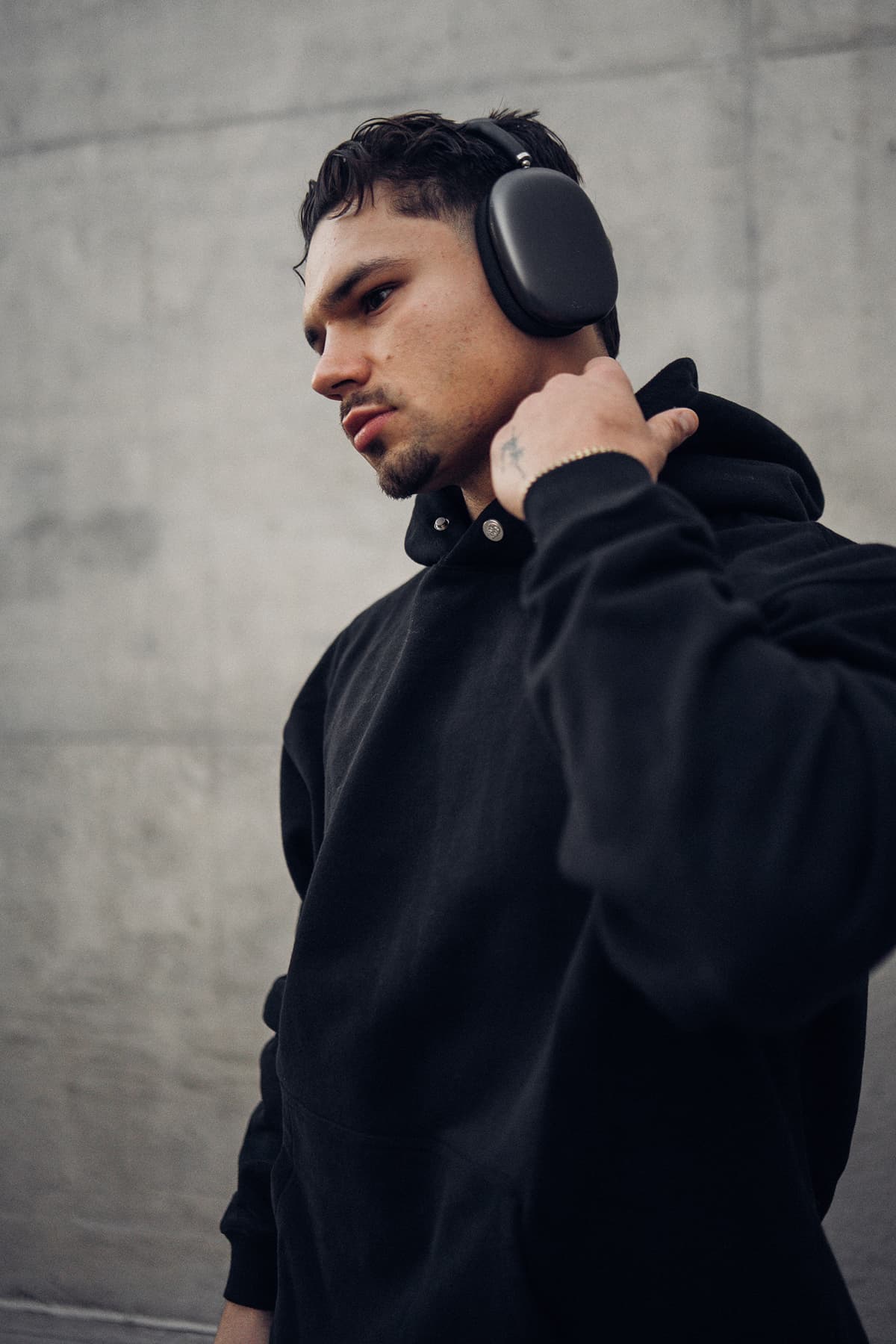

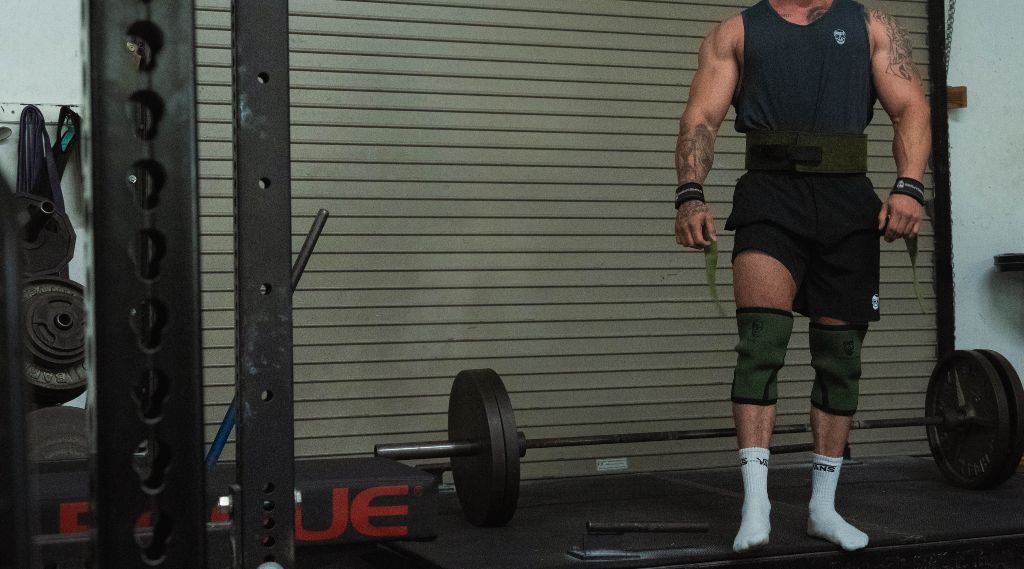
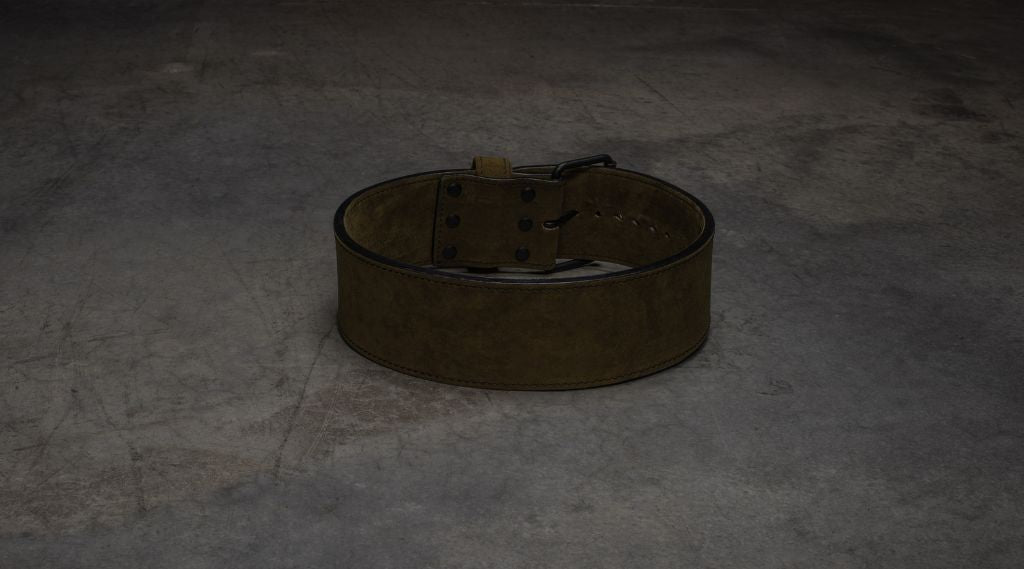
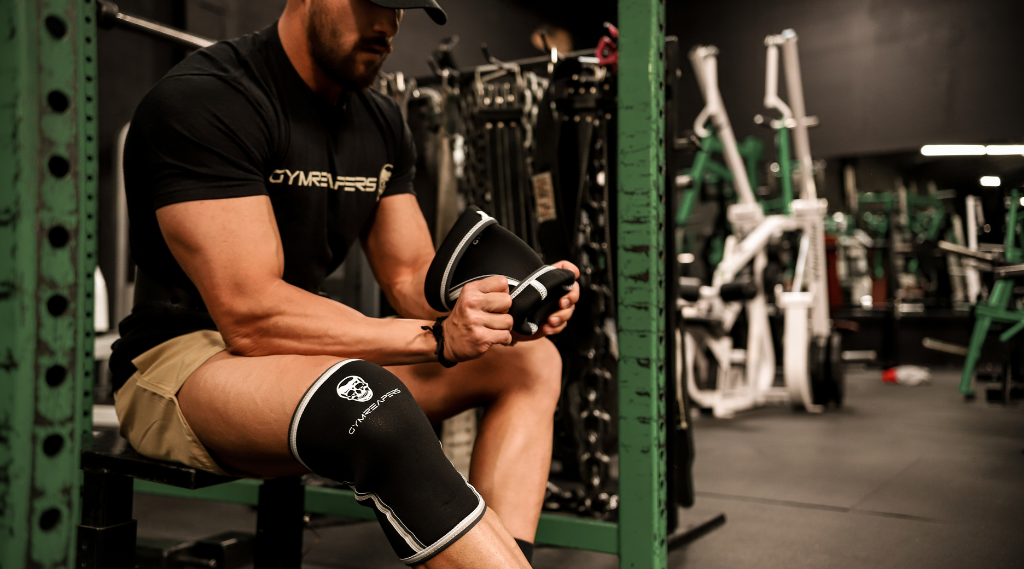
Leave a comment
All comments are moderated before being published.
This site is protected by hCaptcha and the hCaptcha Privacy Policy and Terms of Service apply.